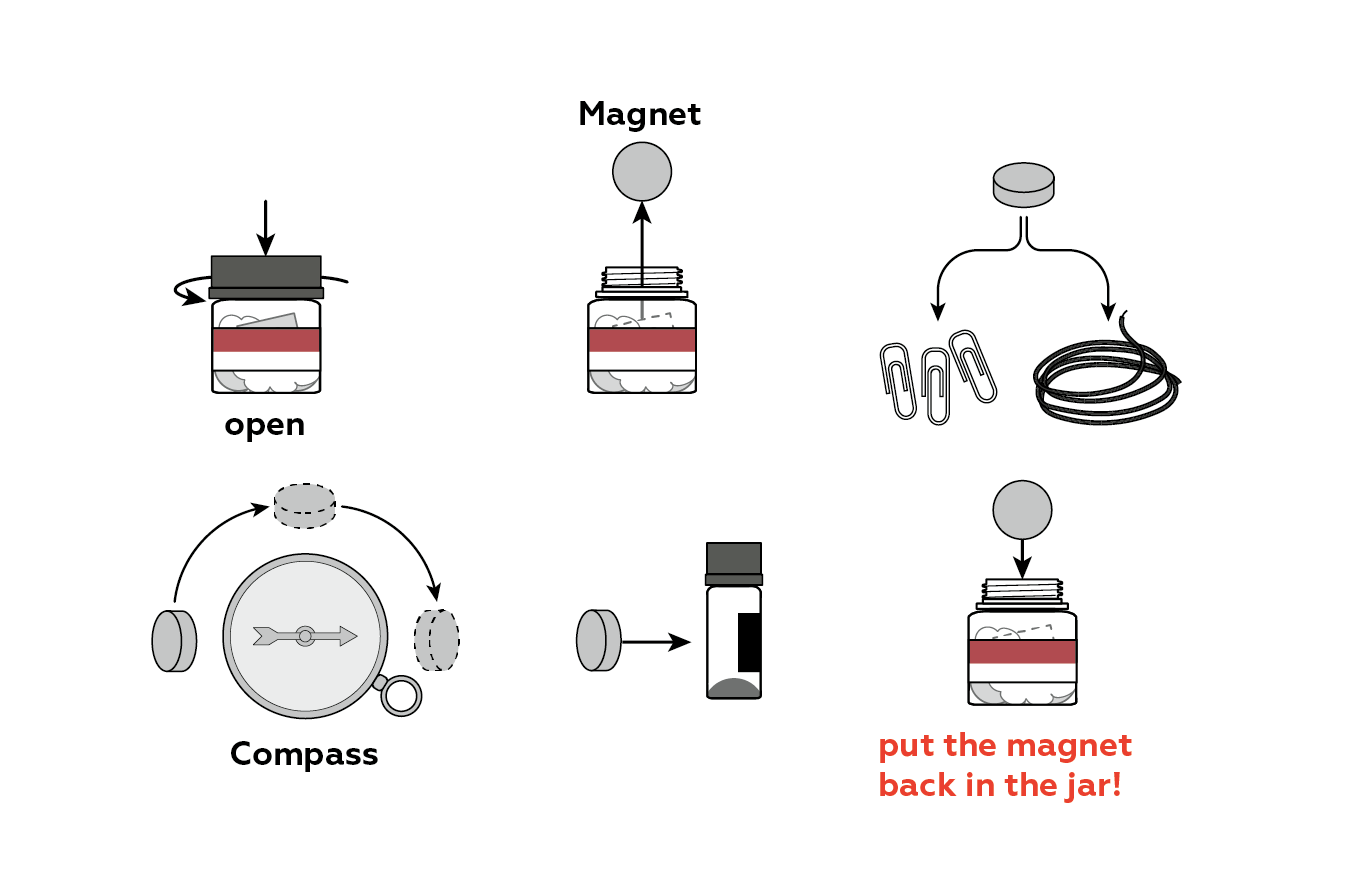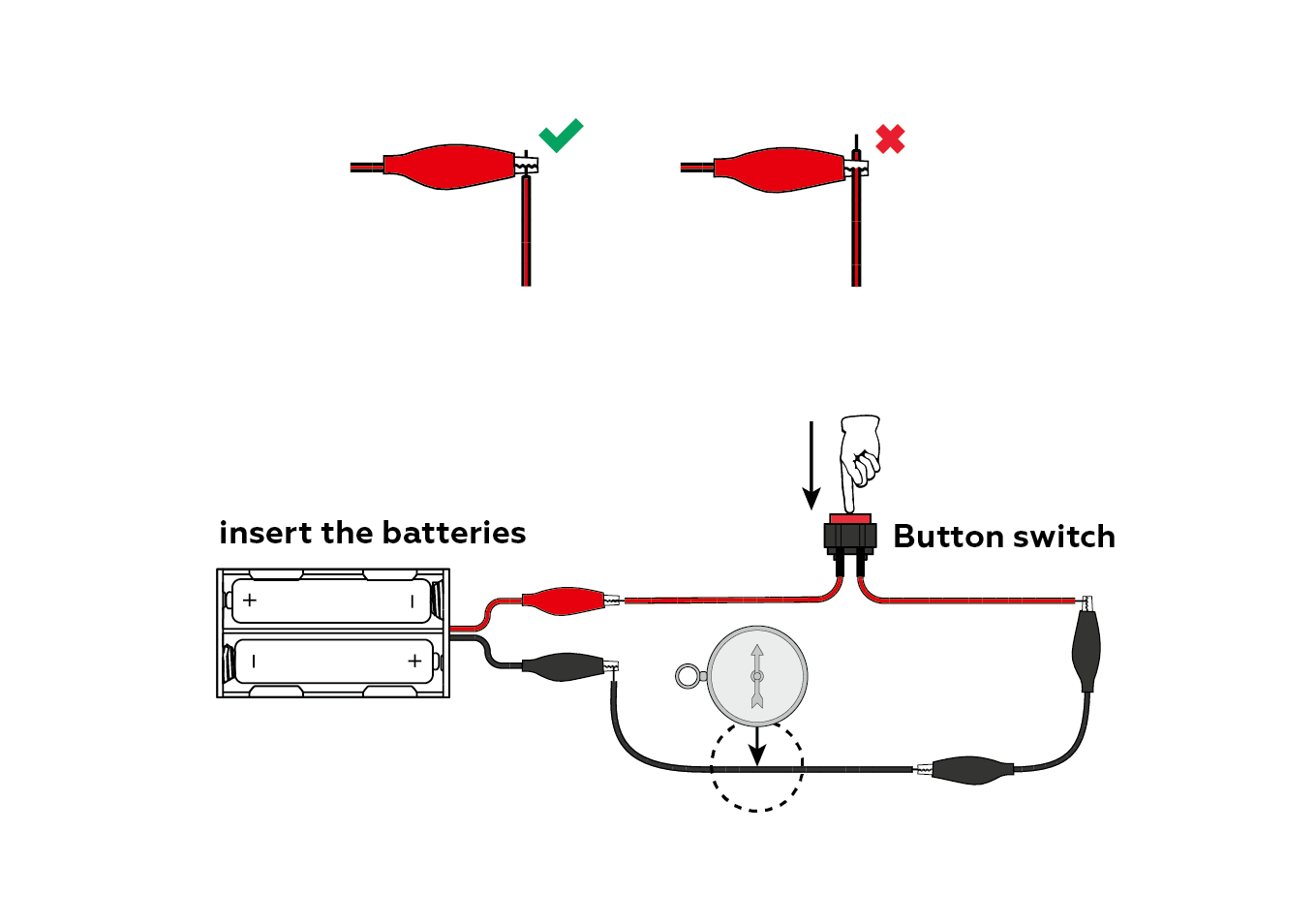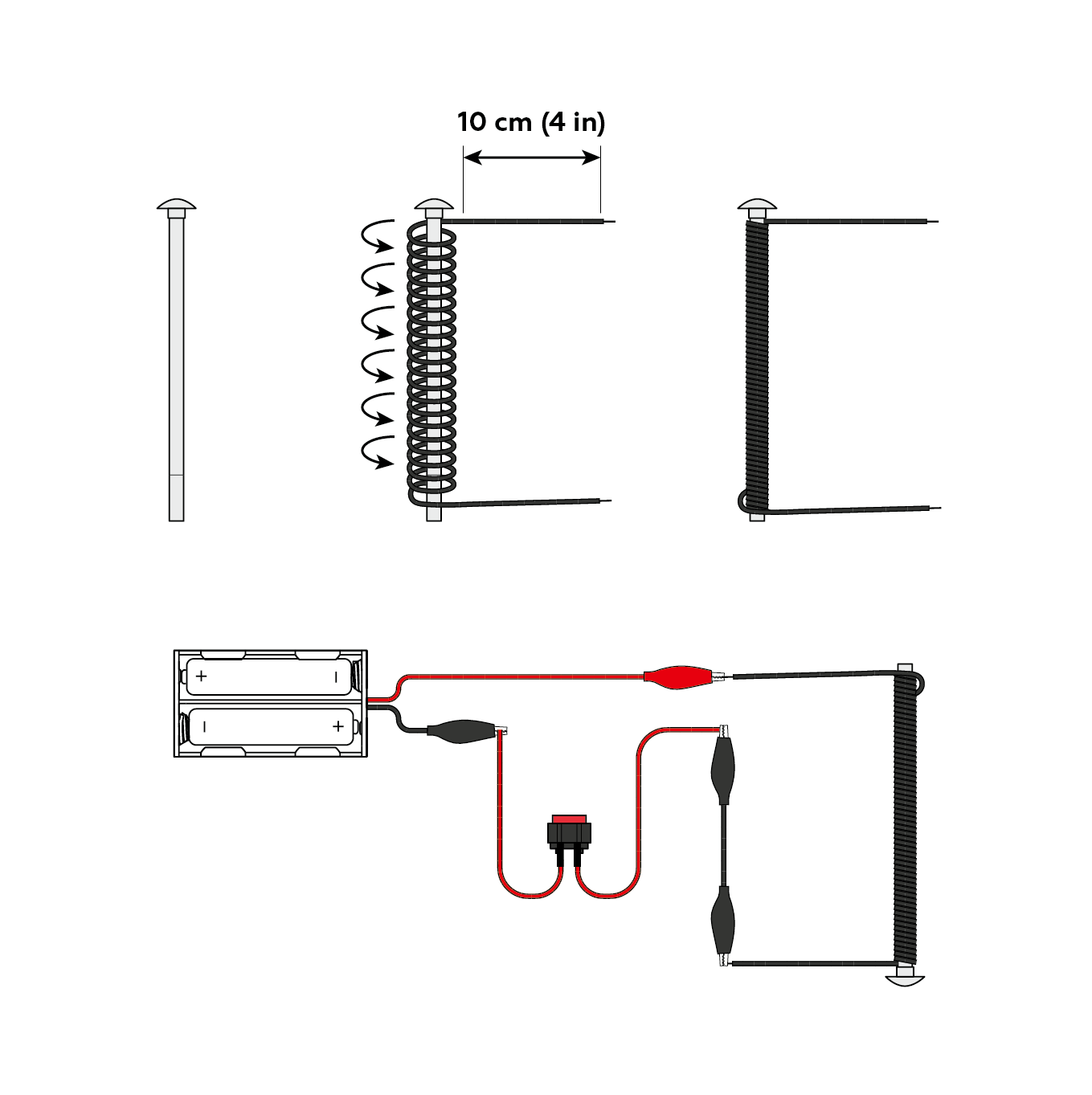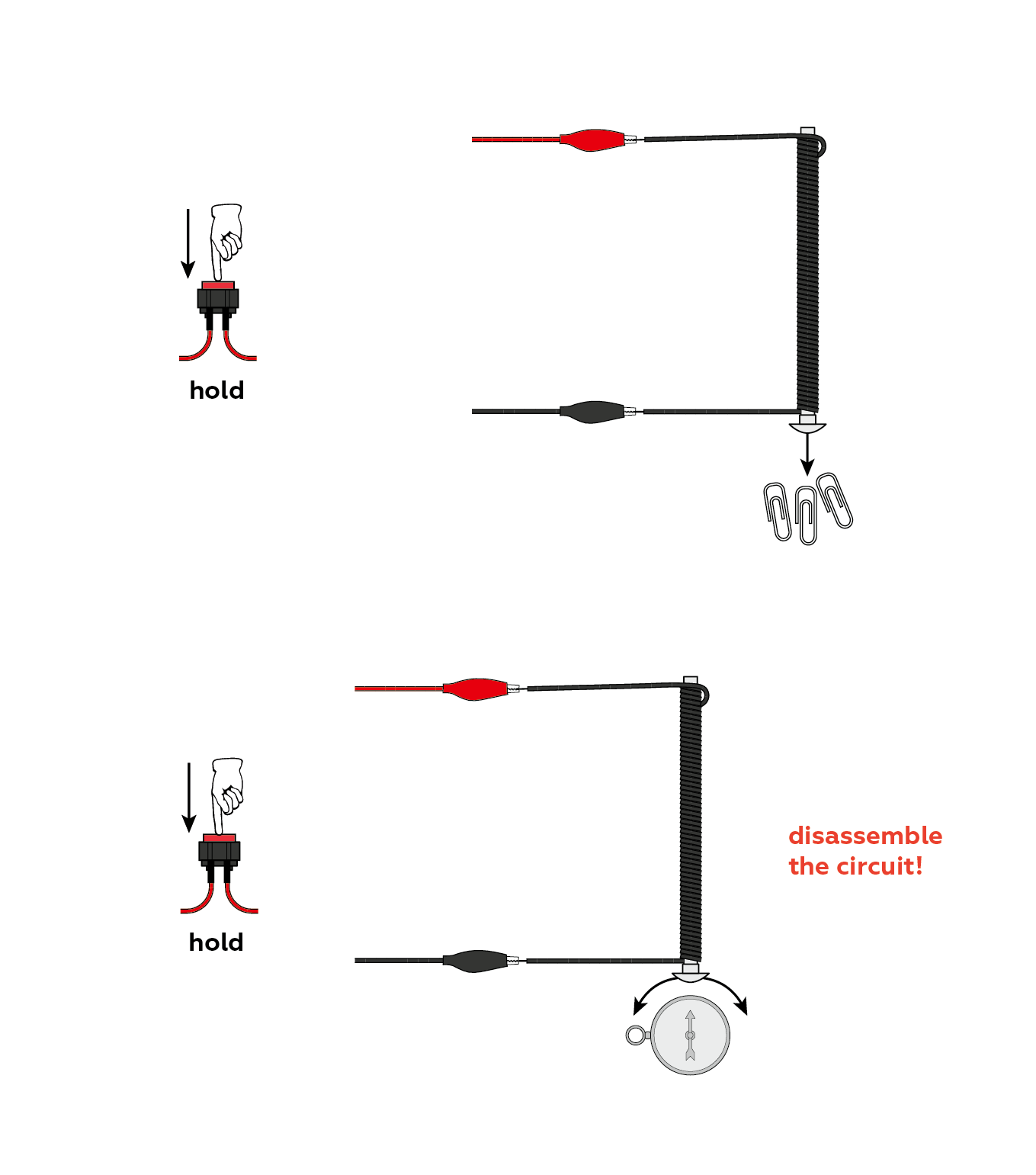Electromagnet
Learn to manipulate magnetic forces!
Safety
- Carefully review the general safety advice on the back of the box cover before starting the experiment.
- Read the “Magnets and electricity” section of the safety guidelines carefully before proceeding. Do not let children under 8 years old handle small magnets.
- Read the “Working with Batteries” section of the safety guidelines carefully before proceeding.
- Disassemble the setup after the experiment.
Step-by-step instructions
Let’s see how a magnet interacts with metal objects (paper clips and a wire) and a compass!

The batteries make electrons run through the wire from the “–” to the “+” terminal, thus creating electric current. The compass, in turn, helps us detect whether a current-carrying wire features magnetic properties.

Coiling the current-carrying wire into a spiral will strengthen its magnetic properties. Close the electrical circuit to allow current to flow through the spiral wire.

The button switch allows us to control the electric current. Now, let’s see how the coiled current-carrying wire interacts with paper clips and the compass!

Disposal
- Dispose of used batteries in accordance with local regulations.
- Dispose of solid waste together with household garbage.
Scientific description



between magnets and other materials decreases
with distance.



In this experiment, you used the metallic disc, which is a permanent magnet—it always features magnetic properties. A magnet with a magnetic field originating from electric energy is a different story. This is called an electromagnet.
 |
 |
A good example would be a metal wire 




That’s interesting!
Metals that magnets can pull on are called ferromagnetic materials. What is so special about them? They become magnets themselves when subjected to a strong enough external magnetic field. See for yourself! When a paper clip is pulled on by a magnet, it can then pull on other paper clips.
Where are ferromagnetic materials utilized? They are mostly used to enhance the magnetic field of electromagnets. As mentioned above, electromagnets are magnets with a magnetic field that originates from electricity flowing through it. A simple example would be a wire coiled around a rod made of solid ferromagnetic material. Here, the magnetic field of the electromagnet turns the ferromagnetic rod into a magnet with its own magnetic field. Both fields add up to create a stronger resulting magnetic field.